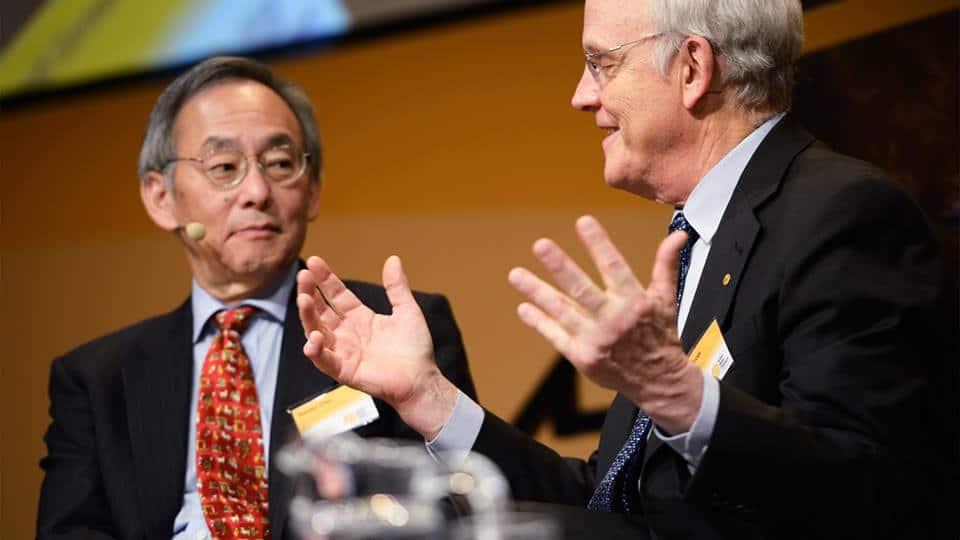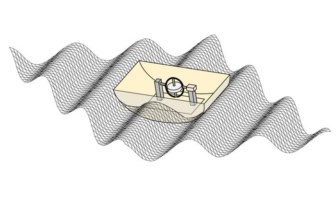
By Michael Banks
Yesterday I joined more than 1000 people attending the day-long Nobel Week Dialogue event in Gothenburg, Sweden. The delegates battled the cold winter weather to make it to the Swedish Exhibition and Congress Centre, just south-east of the city centre (and next to a theme park, of all things).
This is the second such Nobel Week Dialogue and the first time it has been held in Gothenburg. Last year the theme for the event in Stockholm was the “genetic revolution” and this year it was on “exploring the future of energy”.
The free meeting, which was also streamed live online, aimed to “deepen the interaction” between the scientific community and society. The 36 panellists included top scientists and leading business leaders such as the chairman of BP, Carl-Henric Svanberg, as well as the physics Nobel laureate Steven Chu.
I was one of 11 bloggers for the event and you can read the team’s blog posts here.
One aspect I came away with was the difference in views regarding renewables among scientists and some in the business world.
BP for one suggests that renewables won’t play a major role in the energy mix even by 2035, putting the share of renewable energy somewhere on a level with nuclear (around 5% of the total energy supply). The oil giant even thinks that renewables could reach a maximum energy share around 2030 and decrease afterwards. Scientists think, and probably hope, otherwise.
Nuclear power also had a mixed reception. In any case it seems like it will remain as a reliable “base” in the energy mix. Fatih Birol, director of global energy economics at the International Energy Agency, said that we “cannot afford” to exclude nuclear.
However, Chu, a former US energy secretary from 2009 to 2013, noted there were four issues with nuclear power – safety, proliferation risks, the problem of nuclear waste and finally the huge upfront costs that are needed to build nuclear plants in the first place.
He even went as far as to say that by the end of this century we won’t need nuclear power, pointing out that renewables could take over instead.
For those thinking that nuclear fusion might provide all our answers, Chu suggested that it “might not even work” – a view that seemed to be backed up by fellow physics Nobel laureate Carlo Rubbia, who says that he is not convinced by fusion and that current research based around the fusion of hydrogen isotopes is “a step in the wrong direction”.
It’s hard to reach any kind of conclusion on such a vastly ranging topic as energy, but one thing seemed clear: something has to be done about ballooning carbon emissions. It is high now, never mind when the world’s population increases to nine billion as it is set to do over the coming decades or as the developing world becomes more energy hungry.
It seems like the Nobel Week Dialogue has hit a rich vein, in which the debate will continue for a long time to come.



